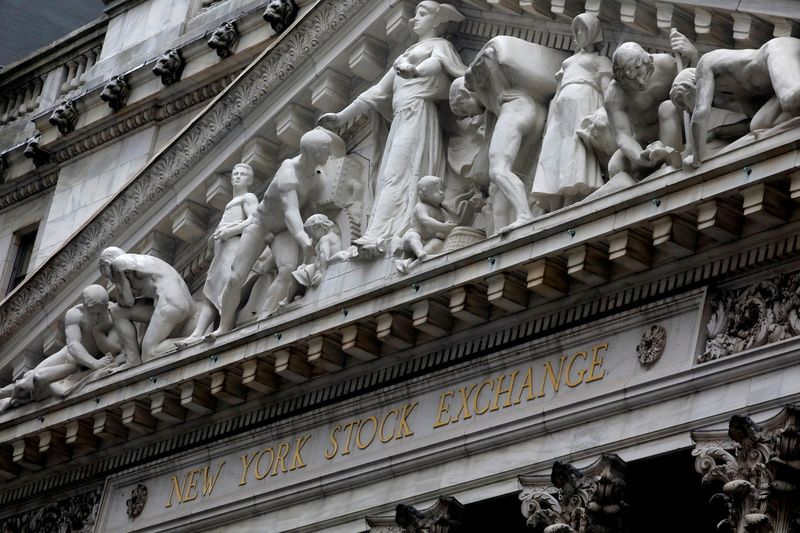By Geoffrey Smith
Investing.com -- Earnings season kicks off with JPMorgan (NYSE:JPM), Citigroup (NYSE:C) and Wells Fargo (NYSE:WFC) all due to release their fourth-quarter figures. Retail sales and industrial production numbers are due for December. Global and U.S. stocks find nothing new in Joe Biden’s stimulus plans to get excited about, while Angela Merkel’s party convenes to elect her successor. Here’s what you need to know in financial markets on Friday, January 15th.
1. Banks to kick off earnings season
Earnings season kicks off properly with updates from JPMorgan, Citigroup, Wells Fargo and PNC Financial (NYSE:PNC), at the end of a week that has seen the profit outlook for all three improve sharply thanks to a sell-off in U.S. Treasury bonds.
The difference between short-term rates, which are set to stay anchored near zero for the next two years, and long-term rates, is what determines bank’s lending margins.
The banks’ fourth-quarter results will be stamped by the sharp rebound in cyclical stocks in the wake of vaccine authorizations at the end of last year.
Investors will also keep an eye out for updates on bad loan provisions, which fell sharply in the third quarter after an initial surge in the previous three months.
2. Markets shrug at Biden's stimulus plans
President-elect Joe Biden’s stimulus plans got a muted response from global stock markets, which appeared to have discounted most of the $1.9 trillion in measured sketched out in Biden’s announcement on Thursday.
The Euro Stoxx 50 and Nikkei were both down 0.6%, while the Shanghai Shenzhen CSI 300 also inched down.
Biden’s plans include a top up of $1,400 in direct payments to households, aid for state and local governments as well as other elements that were all fiercely opposed by Republicans in the last session of Congress. The measures are unlikely to be passed all at once and certainly not in the form outlined yesterday, said Paul Donovan, chief economist with UBS Global Wealth Management.
3. Stocks set to open lower; Chinese tech giants escape blacklist
U.S. stocks are also in a “Buy the rumor, sell the fact” mood after Biden’s announcement contained little to justify fresh buying. Anticipation of the event had already driven all three indices to record highs earlier in the week.
By 6:30 AM ET (1130 GMT), Dow Jones futures were down 141 points, or 0.5%, while S&P 500 futures were also down 0.5% and NASDAQ Futures were down 0.4%.
Stocks likely to be in focus later include Alibaba (NYSE:BABA), Baidu (NASDAQ:BIDU) and Tencent Holdings (OTC:TCEHY), whose ADRs were left off the latest update to the U.S. blacklist on investment in Chinese companies. The Hong Kong-listed shares of mobile phone maker Xiaomi (OTC:XIACF), however, fell over 10% after they were surprisingly added to the list.
4. Retail sales expected to have fallen in December; PPI, industrial output due
U.S. retail sales are expected to have fallen in December under the impact of spreading lockdown measures that only now appear to be flattening the U.S. Covid-19 infection curve.
Data due for release at 8:30 AM ET are likely to show a 0.2% drop, according to consensus forecasts, which would represent a second straight monthly drop.
Also out later are data for industrial production and producer price inflation for December. Recent data have suggested that industry and manufacturing have held up markedly better than consumer spending during the latest surge in the coronavirus.
The U.S. is closing in on 400,000 deaths from Covid-19, but daily deaths fell to below 4,000 on Thursday, while hospitalizations haven’t posted a new record in over a week now.
5. Life after Angela
Something to keep an eye out for not today, but over the weekend, is happening in Germany. The Christian Democratic Union is set to vote for a new leader to succeed Angela Merkel, who has said she won’t run for Chancellor again.
Of the three candidates, Friedrich Merz is the likeliest to signal a break with Merkel’s centrist approach, having a track record of a more pro-business line and a less indulgent one toward the euro zone’s debt-laden periphery. The two other candidates, Armin Laschet and Norbert Roettgen, are seen more as continuity candidates.
The eventual winner may also not end up being the center-right’s candidate for Chancellor in federal elections due in September. They face competition from Markus Soeder of the Christian Social Union, the CDU’s Bavarian sister party. Given the Union’s clear lead in national opinion polls, whoever emerges on top is still likely to be the next leader of Europe’s biggest economy.
